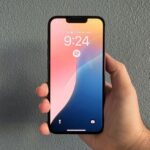Another day, another tariff.
On Monday, President Donald Trump threatened to hammer China with an additional 50% tariff — on top of the the 54% already levied against it — if the Asian giant refuses to cancel the 34% tariff it recently imposed on imports from the U.S., which were set in response to the tariffs announced by Trump on April 2. Yes, this is what a trade war looks like.
Trump said the new total tariff of a whopping 104% on Chinese imports will go into effect on Wednesday, April 9, if China doesn’t back down.
With the vast majority of iPhones still manufactured in China, it could potentially mean huge price hikes for Apple’s popular handset, as well as many of its other products.
If Apple were to pass on the full 104% import tax to its customers, then the iPhone 16 Pro Max (1TB), which currently costs $1,599, would leap to an eye-watering $3,262.
At the other end of the scale, the recently released iPhone 16e — Apple’s most affordable handset — would become rather less affordable with a new price tag of $1,222 for the 128GB version, up from $599.
Meanwhile, the 128GB iPhone 16 would increase from $799 to $1,632.
The good news is that Apple is unlikely to pass on the entirety of the import tax to customers. But while the tech behemoth has enough cash sloshing about to comfortably absorb at least some of the costs, higher pricing for U.S.-based customers — in the current circumstances — still seems somewhat inevitable.
The current situation creates a real headache for Apple CEO Tim Cook, whose top team will no doubt be buried in spreadsheets looking at how the company can absorb at least some of the costs to prevent scaring customers away when it comes to resetting prices.
To ease the pain, Apple will also be trying to persuade component makers and manufacturers to lower their prices, enabling it to reduce production costs to offset the impact of the tariffs. It’s likely also to be looking to speed up the diversification of its supply chain to other countries with lower tariffs.
The company may also be talking to Trump officials in the hope of securing a tariff exemption for the iPhone and other products, something it managed to do during the president’s first term.
Apple is also reported to have engaged in some pre-tariff stockpiling to allow it to retain the current pricing structure while hoping that the U.S. and China can reach some kind of trade agreement to calm what is currently a very volatile situation.
Read the full article here











